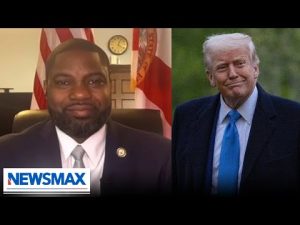In a recent ruling that has left many raising their eyebrows, Judge James Boasberg has stirred the pot by blocking the deportation of a gang from Venezuela known as Tren de Aragua. This decision came after the Trump administration sought to send these gang members packing to El Salvador. The judge stated that each member has the right to individual hearings, as they are already in U.S. custody. In a statement that seems to have more heart than common sense, Boasberg worried about the harsh treatment these gang members might face in El Salvador, claiming it resembles a “prison known as Hell on Earth.” One can’t help but marvel at the irony — criminals being saved from potentially being treated poorly in a foreign prison, while everyday citizens seek safety from the very gangs being protected.
Boasberg’s ruling is part of a larger debate raging over immigration laws and how they are applied. He raised the point that, since these individuals are already under U.S. control, removing them poses little threat to public safety at the moment. However, critics argue that allowing these gang members to remain in the U.S. sends the wrong message—that even those with criminal backgrounds have rights that supersede public safety concerns. In the eyes of many, the judge is prioritizing the well-being of those who break the law over the rights of law-abiding citizens.
As the D.C. Circuit Court of Appeals prepares to hear the case, a cloud of skepticism lingers. The ramifications of this ruling could have serious consequences down the line, especially for communities already struggling with crime. Many wonder whether judges are more focused on their ideologies than the realities faced by the American people. Several commentators have pointed out that most federal judges lean Democratic, raising questions about whether there exists a systematic bias in the judicial system against policies pushed by the Trump administration.
Speaking of biases, a recent report suggested that a federal appeals judge even compared the treatment of Venezuelan migrants to that of alleged Nazis during World War II, insinuating that the latter received better treatment. This shocking claim has sparked outrage. Many are left wondering—what about the safety and rights of everyday Americans who are affected by gang violence? If the judicial system seems more intent on protecting those who have come to the U.S. illegally than ensuring the safety of its citizens, then the priorities are certainly misplaced.
Moreover, this situation isn’t just about a few gang members; it represents a larger battle about the perceptions of immigration and law enforcement in America. The discussion also touches on the Alien Enemies Act, which has become a hot-button topic since it’s being used by the Trump administration to target illegal immigrants linked to gang activity. Critics argue that it is unconstitutional; supporters believe it is a necessary measure. While the judicial system continues to dissect these complicated cases, ordinary citizens are left waiting, hoping that their safety won’t fall victim to judicial disagreements and political posturing.
In the end, this case signifies more than just the fate of a handful of gang members; it reveals the complexities of the immigration debate and the struggles of an administration attempting to uphold law and order. As these legal battles unfold, the American public watches closely, wondering which values will ultimately prevail: protecting lawful citizens or extending leniency to those who have cast aside the very laws meant to keep them safe.







